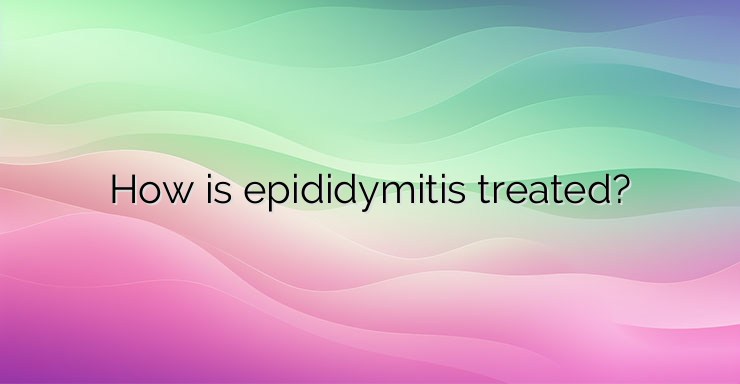What is the treatment for epididymitis? Treatment for epididymitis involves treating the underlying infection and relieving symptoms. Common treatments include: Antibiotics, which are given for 4 to 6 weeks for chronic epididymitis and may include doxycycline and ciprofloxacin A pain reliever that is available over the counter (ibuprofen) or with a prescription (codeine or morphine); Nonsteroidal anti-inflammatory drugs such as piroxicam or ketorolac; Bed rest; Additional treatments may include: Applying cold compresses to the scrotum; Elevation of the scrotum, if possible; Avoiding heavy lifting In cases of sexually transmitted infections, the patient and his partner should refrain from sexual intercourse until the course of antibiotic treatment has been completed and complete healing has occurred. Sometimes it can take a few weeks for the soreness or discomfort to go away completely. In most cases, epididymitis resolves within 3 months. However, in some cases, more invasive treatment may be required. If an abscess has formed in the testicles, the attending physician may drain the pus using a needle or through surgery. Surgery is another option if other treatments have not been successful. It may involve removing all or part of the epididymis. Surgery may also be needed to correct any physical defects that may be causing epididymitis. What is the prognosis for epididymitis? Most cases of acute epididymitis are successfully treated with antibiotics. There are usually no long-term sexual or reproductive problems, but the infection may return in the future. Complications may also occur, but this is rare. Potential complications include: Chronic epididymitis; Shrinkage of the testicles; Fistula or abnormal passage in the scrotum; Testicular tissue necrosis; Infertility It is important to seek treatment immediately to prevent possible complications. Once treatment is prescribed, it is important to complete the entire course of antibiotic therapy for the infection, even if symptoms are no longer present. The attending physician should also be visited after treatment is completed to ensure that the infection has cleared. If persistent pain or discomfort is experienced, medical attention should be sought, especially if symptoms do not improve within four days. In case of severe pain in the scrotum or high fever, medical help should be sought immediately. Bibliography: Shenot, PJ (2015, May). Epididymitis Centers for Disease Control and Prevention (CDC). Epididymitis


Leave a Reply